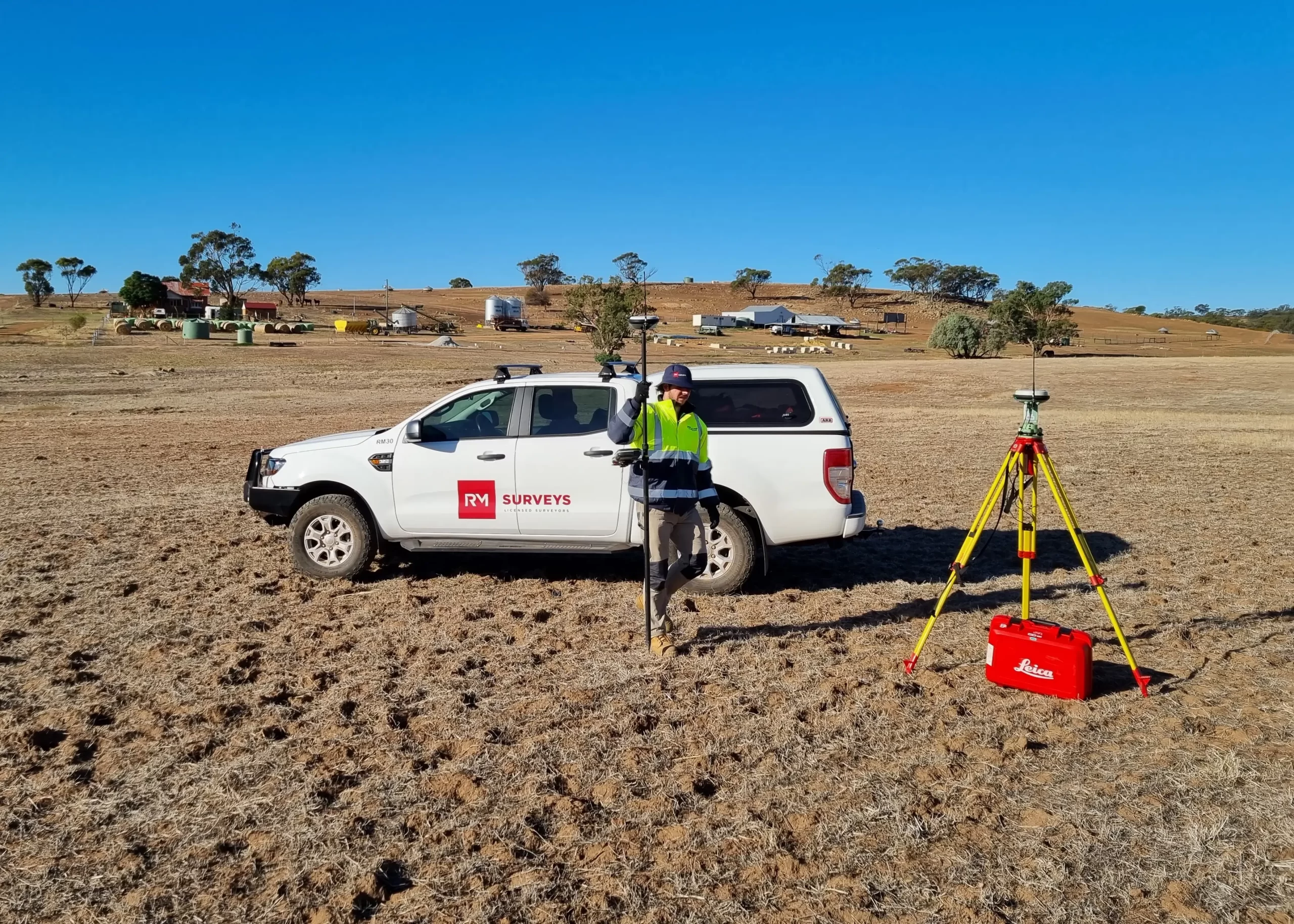What Is a Site Survey and Why Is It Essential for Your Project?
What Is a Site Survey and Why Is It Essential for Your Project?
If you’re managing a large-scale construction project, planning a new development, or upgrading critical infrastructure, ensuring that every stage of your project runs smoothly is key.
One of the most crucial steps in this process is conducting site surveys. Site surveys provide precise data and insights required to make informed decisions, and to guide your project from concept to completion while avoiding costly delays or mistakes.
So, what is a site survey and why is it important for projects across a variety of industries such as construction, mining, engineering and land development?
What is a site survey?
A site survey is a detailed inspection and analysis of a specific location to gather critical information about its physical features, dimensions, boundaries, and existing conditions. This process involves using specialised surveying techniques and equipment to produce accurate data that serves as the foundation for design, planning, and construction.
The specific focus of a site survey depends on the project requirements. It can include assessing topography, identifying underground utilities, confirming property boundaries, and evaluating environmental or structural factors.
Data collection can be presented in the form of detailed maps, reports, or digital models that help stakeholders make informed decisions.

Why is a site survey essential for your project?
From ensuring compliance with regulations to avoiding unnecessary risks, site surveys are fundamental to project success. Here’s why they’re so important:
1. Accurate project planning
Without precise data about your site, planning becomes guesswork. A site survey eliminates uncertainty by providing accurate measurements and insights into the site’s current conditions.
This ensures that every element of your project, from design to construction, aligns with real-world parameters.
For example, in a residential development, a survey will reveal terrain elevations, drainage paths, and property boundaries, allowing architects and engineers to create designs that fit the land perfectly.
2. Avoiding costly mistakes
Errors in the early stages of a project can lead to significant delays and expenses later. A site survey helps identify potential issues and environmental conditions, such as natural constraints (trees), hidden underground utilities, or encroachments on neighbouring properties. By addressing these challenges upfront, you can prevent costly rework and minimise disruption.
For infrastructure projects, this means avoiding the costly relocation of underground services or redesigning plans to meet legal requirements.
3. Ensuring regulatory compliance
Every industry operates under strict regulations and standards, particularly regarding land use, boundaries, and safety. A site survey ensures your project complies with all relevant laws and guidelines, reducing the risk of fines, legal disputes, or delays.
For example, local councils or government agencies often require professional surveys to confirm that developments adhere to zoning laws or environmental impact standards.
4. Enhancing the safety of the project
Safety is paramount in construction and engineering projects. A site survey plays a critical role in risk assessment by identifying potential hazards, such as uneven terrain, flood-prone areas, or unstable structures. Valuable insights brought from surveying data helps you mitigate risks and create a safer work environment.
For example– in mining operations, a survey can assess adherence or deviation to design as part of the risk assessment process, ensuring excavation activities are carried out safely to design parameters.
5. Maximising efficiency
By providing accurate data about the site, a survey streamlines workflows and prevents inefficiencies. Contractors, engineers, and project managers can coordinate efforts more effectively, reducing waste and avoiding unnecessary delays.
For companies focused on meeting Environmental, Social, and Governance (ESG) targets, efficient use of resources is a major priority. Site surveys support this by promoting sustainable practices and reducing the environmental impact of projects.

What are the different types of site surveys?
The type of site survey required will depend on your project’s goals and the specific challenges of the site.
Below are some of the most common types of surveys RM Surveys provides:
1. Topographic surveys
Topographic surveys map the natural and man made features of a site, such as elevations, slopes, vegetation, buildings, and drainage. This type of survey is essential for civil engineering projects, as it helps design structures that work harmoniously with the land.
2. Boundary surveys
Boundary surveys define the legal boundaries of a property to ensure there are no disputes with neighbouring properties. This is critical for property developers, real estate transactions, and landowners looking to expand their holdings.
3. As-built surveys
These surveys document the exact location and specifications of existing structures or utilities already in place. As-built surveys are commonly used to confirm compliance with construction plans or for future maintenance purposes.
4. Construction site surveys
Construction site surveys provide precise reference points and marks to guide builders during construction. These surveys ensure that every element of the project is positioned accurately, and built to design intent, helping to avoid expensive errors.
5. Environmental and utility surveys
Environmental surveys assess the site’s natural features, including waterways, vegetation, and wildlife, while utility surveys locate underground services like gas, water, and power lines. Both are essential for projects that must meet environmental and safety standards.
Industries that benefit from site surveys
Site surveys are a cornerstone of successful project delivery across many industries. Here are a few examples of sectors that rely on surveying expertise:
- Construction and engineering: To ensure that designs align with site conditions and regulatory requirements.
- Mining and resources: To plan efficient and safe excavation, infrastructure, and operations.
- Land development: To define boundaries, understand terrain, and assess site feasibility.
- Government and infrastructure: To ensure efficient use of public funds while delivering roads, bridges, and utilities that meet regulatory standards.
- Environmental and renewable energy projects: To assess land suitability and minimise environmental impact.

Why choose RM Surveys for your site survey?
At RM Surveys, our approach to site surveying is defined by precision, innovation, and collaboration. We leverage cutting-edge technology, including advanced GPS and laser scanning equipment, to deliver highly accurate and reliable survey data tailored to your project’s unique requirements.
Our people are a team of spatial experts who work closely with clients to understand their goals, identify potential challenges, and ensure compliance with all regulations and standards.
We prioritise clear communication, efficiency, and attention to detail, to provide a seamless surveying experience that supports informed decision-making and sets the foundation for project success. We pride ourselves on working collaboratively with clients, ensuring your project runs smoothly from the ground up.
Whether you’re planning a commercial development, managing infrastructure upgrades, or embarking on an ambitious engineering project, RM Surveys has the expertise to support you every step of the way. With a commitment to precision, compliance, and client satisfaction, we’re the trusted partner for projects across Western Australia.
Lay the groundwork for success with RM Surveys
A site survey isn’t just a step in your project’s process—it’s the foundation upon which success is built. By investing in a professional site survey, you’re not only mitigating risks but also setting your project up for efficient, compliant, and cost-effective delivery.
If you’re ready to take the first step toward a successful project, contact RM Surveys today. Our team is here to answer your questions, provide expert guidance, and deliver the survey data you need to bring your vision to life.
By incorporating site surveys into your project planning, you can move forward with confidence, knowing that every decision is backed by precise, reliable information.
- Enhances efficiency – Real-time measurements allow for quicker decision-making and streamlined workflows.
- Supports compliance – Ensures projects meet industry regulations and quality standards.
Real-World Applications of Dimensional Control & Metrology
Dimensional Control & Metrology plays a crucial role in several high-precision industries:
Construction & Engineering: Ensuring exact placement of steel structures and alignment of critical interfaces.
Mining & Resources: Maintaining accuracy during heavy equipment fabrication and on-site construction, and the positioning of mechanical components during plant installation.
Oil & Gas: Verifying components of offshore structures and reducing errors in pipeline alignment. Ensuring dimensional compliance of critical sealing interfaces.
Manufacturing & Defence: High-precision quality control for machinery and defence equipment.
